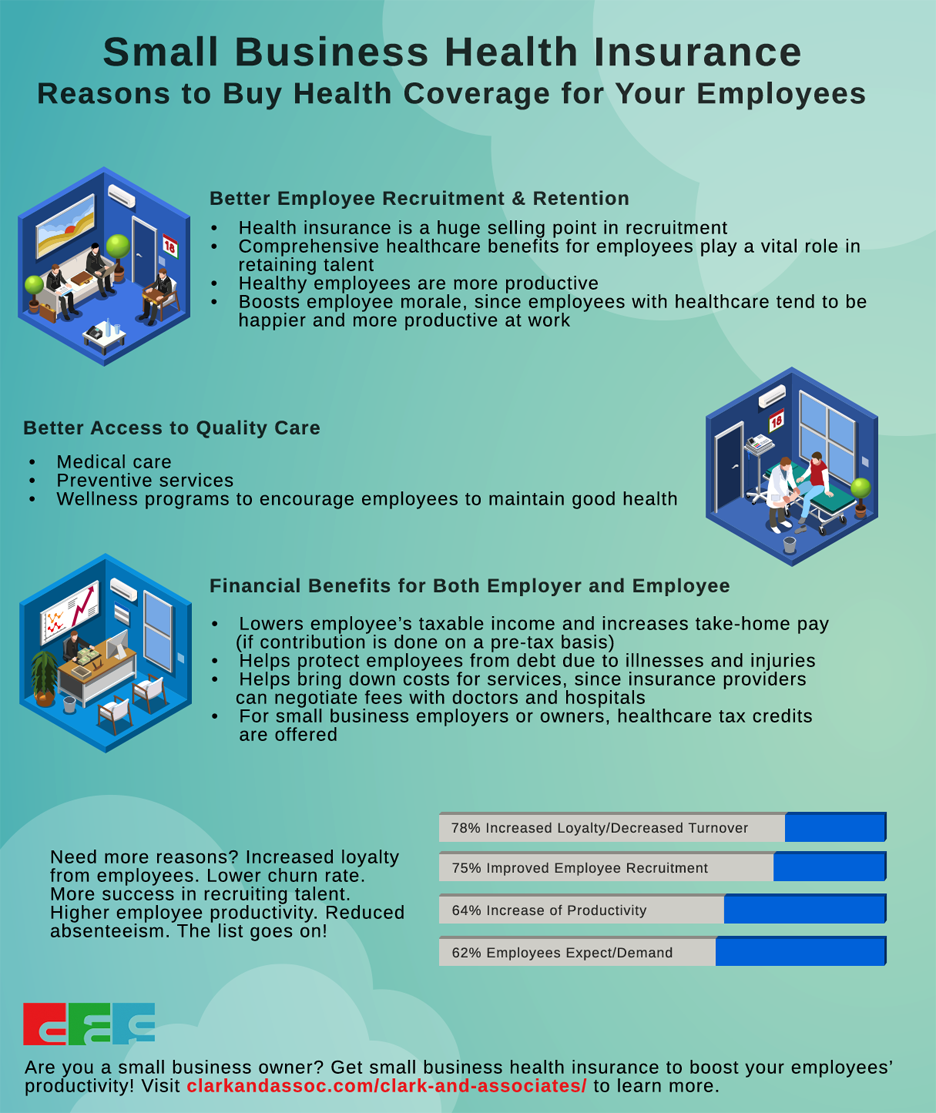Health Insurance Plans for Small Business Owners: What You Need to Know-www.waukeshahealthinsurance.com-www.waukeshahealthinsurance.com
Juggling finances, marketing, operations, and customer relations often leaves little time for personal matters, including healthcare. Yet, securing adequate health insurance is crucial not only for your well-being but also for the well-being of your employees. Navigating the complexities of small business health insurance can feel overwhelming, but understanding the key aspects can make the process significantly easier. This article will guide you through the essential considerations for choosing the right health insurance plan for your small business.

Why Health Insurance is Crucial for Small Businesses
Offering health insurance is a powerful recruitment and retention tool. In today’s competitive job market, providing comprehensive health benefits can significantly improve your ability to attract and retain top talent. Employees value the peace of mind that comes with knowing their healthcare needs are covered, leading to increased loyalty and productivity.
Beyond employee benefits, securing health insurance for yourself as the business owner is paramount. Unexpected medical expenses can cripple a small business, especially if you’re the primary income earner. Health insurance protects you from catastrophic financial burdens associated with illness or injury, allowing you to focus on running your business.
Understanding the Affordable Care Act (ACA) and its Impact on Small Businesses
The Affordable Care Act (ACA) significantly impacted the landscape of health insurance, particularly for small businesses. The ACA offers tax credits to eligible small businesses that offer health insurance to their employees, making it more affordable to provide this crucial benefit. Eligibility for these tax credits depends on factors such as the number of employees and average employee wages. Understanding the ACA’s provisions is crucial for determining your eligibility and maximizing potential savings. For more detailed information on ACA compliance and tax credits, consult a qualified healthcare professional or visit the official government website.
Types of Health Insurance Plans for Small Businesses
Several types of health insurance plans are available to small businesses, each with its own advantages and disadvantages:
Health Maintenance Organizations (HMOs): HMOs typically offer lower premiums but require you to choose a primary care physician (PCP) within the network. Referrals are usually needed to see specialists.

Preferred Provider Organizations (PPOs): PPOs offer more flexibility, allowing you to see specialists without referrals and often providing coverage for out-of-network care, albeit at a higher cost. Premiums are generally higher than HMOs.

Point of Service (POS) Plans: POS plans combine elements of HMOs and PPOs, offering a balance between cost and flexibility. They usually require a PCP but offer more flexibility in choosing specialists.
Exclusive Provider Organizations (EPOs): EPOs are similar to HMOs, but they typically offer a wider network of providers. Out-of-network care is generally not covered.
High Deductible Health Plans (HDHPs): HDHPs feature lower premiums but higher deductibles. They are often paired with Health Savings Accounts (HSAs), which allow pre-tax contributions to be used for medical expenses.

The best plan for your business will depend on your budget, employee needs, and risk tolerance. Careful consideration of these factors is essential for making an informed decision.
Factors to Consider When Choosing a Plan
Several factors need careful consideration when selecting a health insurance plan for your small business:
Budget: Determine how much you can afford to spend on premiums and other healthcare costs.
Employee Needs: Consider the age, health status, and family size of your employees when choosing a plan that adequately covers their needs.
Network of Providers: Ensure the plan includes a network of providers that are convenient and accessible to your employees. Check out our network of providers at www.waukeshahealthinsurance.com.
Prescription Drug Coverage: Evaluate the plan’s formulary (list of covered medications) to ensure it covers the medications your employees need.
Deductibles, Co-pays, and Out-of-Pocket Maximums: Understand the financial responsibilities associated with each plan, including deductibles, co-pays, and out-of-pocket maximums.
Administrative Costs: Consider the administrative burden associated with managing the plan, including paperwork, billing, and claims processing.
Working with an Insurance Broker
Navigating the complexities of small business health insurance can be challenging. Working with an experienced insurance broker can significantly simplify the process. A broker can help you compare plans, understand your options, and negotiate favorable rates. They can also assist with enrollment and ongoing administration. Find a trusted broker near you by visiting our website at www.waukeshahealthinsurance.com.
Open Enrollment and Plan Changes
Most small businesses have an annual open enrollment period during which employees can choose or change their health insurance plans. Understanding the timing of open enrollment is crucial for ensuring your employees have the opportunity to select the plan that best suits their needs. For information on open enrollment periods and deadlines, please refer to our website at www.waukeshahealthinsurance.com.
Employee Communication and Education
Effective communication with your employees is crucial for ensuring they understand their health insurance benefits. Provide clear and concise information about the plan’s features, benefits, and costs. Consider offering educational resources to help your employees make informed decisions about their healthcare.
Staying Compliant with Regulations
Staying compliant with federal and state regulations is essential for avoiding penalties and ensuring the smooth operation of your health insurance plan. Keep up-to-date on changes in regulations and seek professional advice if needed. Our website at www.waukeshahealthinsurance.com provides resources to help you stay compliant.
Conclusion
Choosing the right health insurance plan for your small business is a significant decision that requires careful planning and consideration. By understanding the various types of plans, factors to consider, and the importance of working with a broker, you can make an informed choice that benefits both your employees and your business. Remember to utilize available resources and seek professional advice to navigate the complexities of the process. For further assistance and to explore your options, contact us at www.waukeshahealthinsurance.com. Investing in your employees’ health is an investment in the future success of your business.
